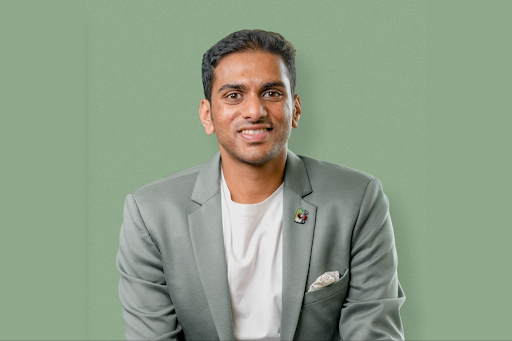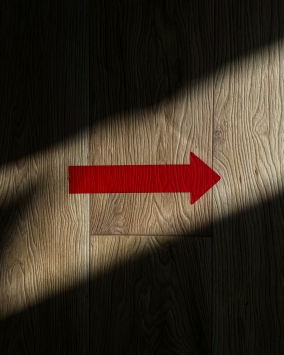

💊 Why ReMediKart? Every year, tons of expired or unused medicines from homes, clinics & pharmacies are thrown away. ⚠️ They pollute water & land, 😷 cause health hazards, ❌ and go to waste—even if unopened & safe. 📉 No
See More
Nahi chalega. Worst & illegal idea. Can put u behind bars
This is really great i like to be in your team
Please DM Us ✨
1. 🧑⚖️ Legal Restrictions on Reuse Most countries, including India, have strict laws preventing the reuse or redistribution of medicines—even if sealed or within expiry. 2. ⚠️ Safety & Liability Risk If someone gets harmed from a reused medicine, legal liability can fall on ReMediKart or its partners. 3. 🧪 Medicine Verification Is Complex Determining if a medicine is genuine, properly stored, or tampered with requires advanced, often expensive systems—not just QR or visual checks. 4. 🚚 Collection Logistics Are Expensive Collecting small quantities of medicine from households has a high cost with little immediate return. 5. 📦 Storage & Sorting Burden Sorting, storing, and managing thousands of strips of various meds requires warehouse space and trained staff. 6. 👥 Low User Motivation Most people won’t take the effort to donate old meds unless the process is ultra-easy or the reward is very strong. 7. 💊 Lack of NGO/Pharma Willingness NGOs and pharmaceutical companies may be reluctant to be associated with reused drugs due to reputational risk. 8. 🌡️ Temperature-sensitive Drugs Are Useless Post-collection Medicines like insulin or vaccines lose efficacy if not stored perfectly — even a small break in the cold chain renders them unusable. 9. 🏥 Pharmacies Already Struggle With Expired Stock Many pharmacies already have difficulty managing their own expired drugs — adding household meds increases burden. 10. 📉 Poor Scalability Without Institutional Support Without government policy change or mass CSR funding, the model may never scale beyond a local initiative. 11. 🚫 Trust Deficit From End Users Final recipients (patients, NGOs) may not trust medicine that didn’t come directly from a certified pharmacy or hospital. 12. 📈 Difficult to Monetize Even with recyclables or CSR funding, creating a sustainable profit model is tough without massive volumes or government tie-ins. 13. 🧾 Regulatory Red Tape Getting approvals for medicine redistribution, waste handling, or recycling may involve years of paperwork. 14. 📊 Hard to Prove Impact Initially In early stages, collecting enough data to prove real environmental or health impact is difficult, which affects funding and scaling.
1. Legal Restrictions Issue: India and many countries prohibit redistribution of medicine, even if sealed. Response: → Start by collecting only OTC (over-the-counter) drugs like multivitamins, paracetamol, or basic first-aid kits. → Partner with government bodies or CSR arms to operate under medical waste collection/relief norms. ⸻ 2. Safety & Liability Risk Issue: Risk of someone falling sick from reused medicine. Response: → Accept only sealed strips with valid expiry (12+ months). → Work with licensed pharmacists or hospitals to verify, sort, and repackage where legally allowed. ⸻ 3. Verification Complexity Issue: It’s hard to verify medicine quality. Response: → Implement a 2-level verification: visual + pharmacist check. → Focus on standardized and mass-market meds initially (e.g. Crocin, ORS). ⸻ 4. Collection Logistics Are Expensive Issue: High cost of collecting small quantities from homes. Response: → Set up drop boxes at clinics, schools, pharmacies. → Offer collection drives only during campaigns to reduce cost per pickup. ⸻ 5. Storage & Sorting Burden Issue: Sorting medicines takes trained staff and space. Response: → Partner with medical colleges, NGOs, or hospital interns for sorting as social impact internships. → Keep inventory digital via QR-tagging system. ⸻ 6. Low User Motivation Issue: Most people won’t donate without strong incentives. Response: → Offer certificates, leaderboard recognition, or tie-in with tax-exempt donation receipts. ⸻ 7. NGO/Pharma Reluctance Issue: Reputational risk for partners. Response: → Highlight environmental + social impact, and start with less risky OTC items. → Show pilot data to gain trust. ⸻ 8. Temperature-Sensitive Drugs = Useless Issue: Cold chain breaks ruin drugs. Response: → Completely exclude insulin, vaccines, eye drops, etc. from collections. ⸻ 9. Pharmacies Already Struggle with Expired Stock Issue: Difficult to manage expiry at scale. Response: → Build a first-in-first-out (FIFO) inventory system. Only accept items with 6+ months validity. ⸻ 10–14. Trust, Monetization, Regulation, and Impact Proof Response: • Build trust via hospital or Red Cross tie-ups. • Monetize via CSR funding, pharma ESG budgets, or e-waste-style subscription models for homes. • Start under a non-profit or public health arm to bypass regulatory delays. • Prove impact through pilot studies with clear metrics: number of patients helped, ₹ saved, carbon impact.
Great step towards medical waste management
Thank You 🙏Means A Lot
Waste management disposal is the next big thing for India. With a population more than a billion and the amount of waste that is generated needs some kind of a solution and yes, this looks promising. Although the idea seems to target one small portion of waste that is medicines, there's a good potential to expand it to other verticals. Definitely looks like a great coordination play between various agencies is mandatory to execute this idea , I guess starting small in a tier 2 city would give a great insight in the best ways to pick up the waste , best ways to dispose and the laws to landfilla and recycling. Once things are sorted in pilot run, it would be easy to scale up. Definitely vouch for such a great idea and please do contact me on DM. I'm interested in discussing more regarding this
You’ve absolutely nailed the broader vision. While ReMediKart starts with unused medicine collection, the long-term roadmap definitely includes other healthcare and pharma-related waste verticals. Starting with a pilot in a tier-2 city is exactly what we’re working towards to understand compliance, logistics, and community behavior. Would love to connect further on this!
Hey Remedikart, Your startup idea is great and I would love to join in as a marketing agency and take this to next level. Please text me at: 918199828031
Sure


Download the medial app to read full posts, comements and news.




























